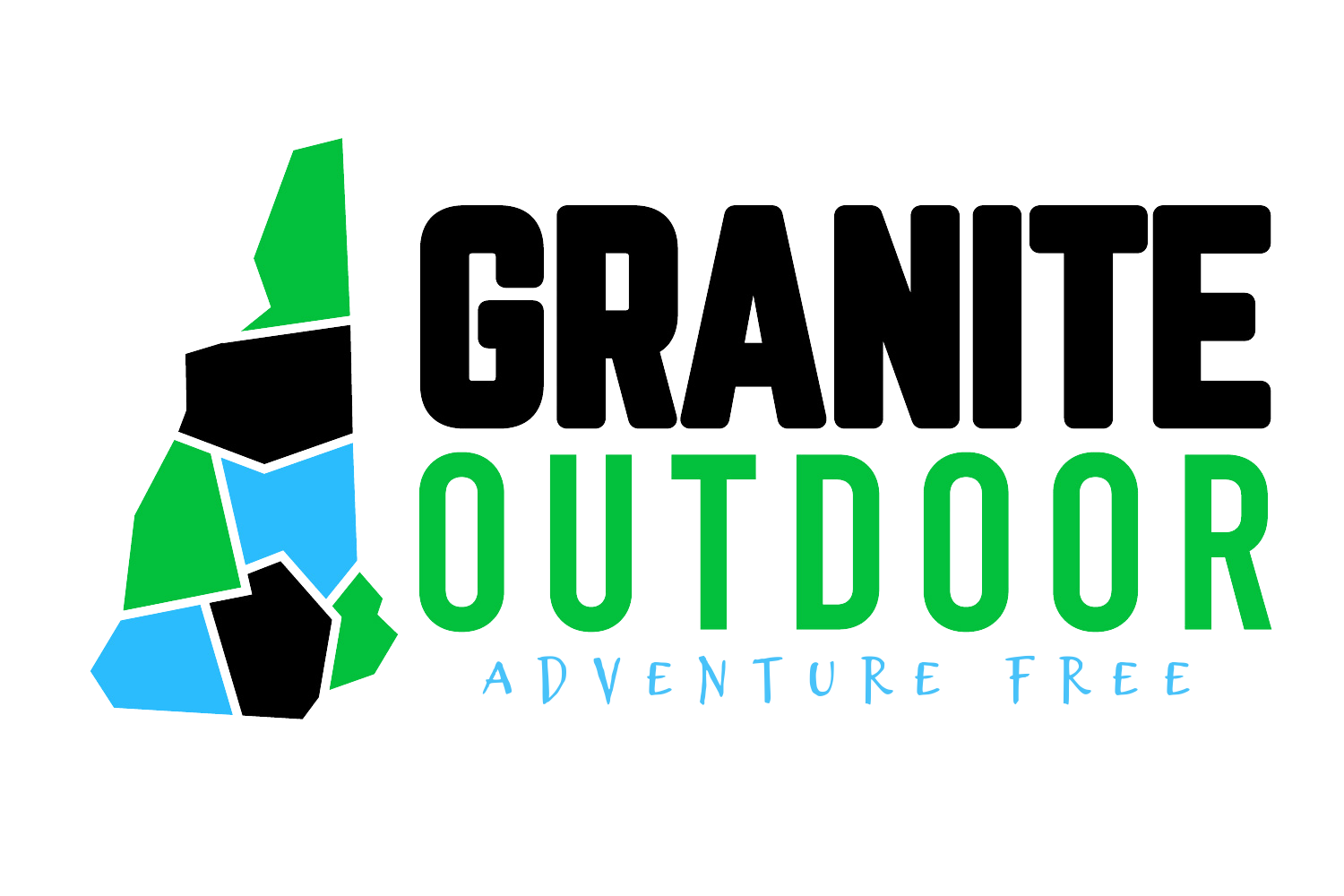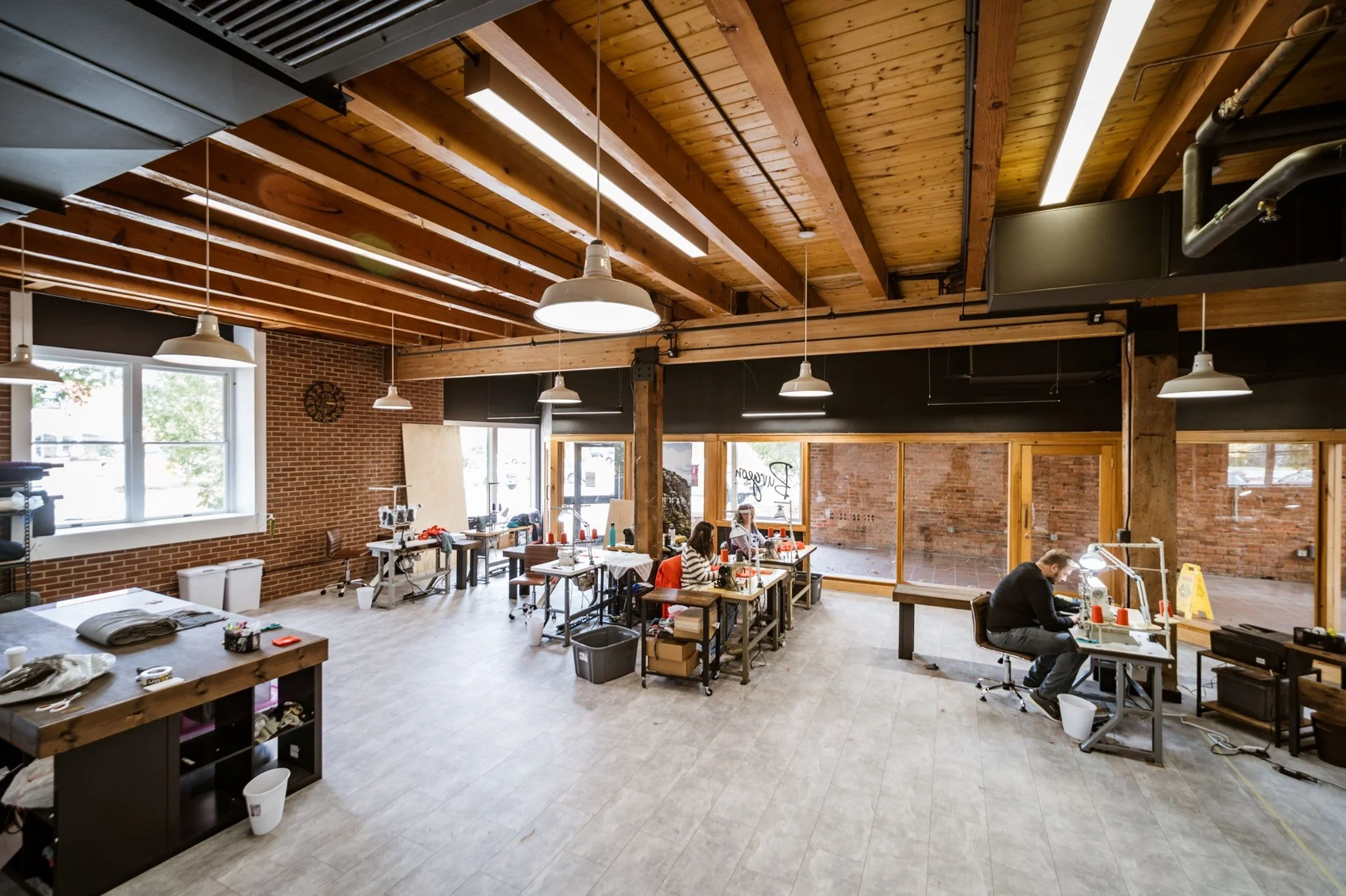
Burgeon Outdoor: Helping Mountain Towns Flourish
Rudy Glocker has a vision for mountain towns. From tourists and tradespeople to researchers and residents, Glocker believes that all folks should be able to find a meaningful existence in these special places.
As the owner of Burgeon Outdoor, a high end outdoor apparel company based in Lincoln, NH, Glocker is passionate about his goals to foster sustainable growth in areas that have lost some vitality, particularly in light of outsourcing and lower wages.
“Burgeon Outdoor is a mission founded company with a vision of creating a better tomorrow for mountain communities,” says Glocker, who started the company in 2019, shortly before the COVID avalanche hit. “We envision a world of prosperous mountain communities that are environmentally rich, socially rich, and economically rich.”
One way to achieve this is by attracting and retaining committed talent. Glocker says Burgeon, which currently has 11 employees, offers extremely competitive employee benefit packages. For instance, five percent of sales goes to a staff bonus pool that is distributed monthly. (The company also donates five percent of sales to local environmental and community organizations.) And, at the onset of the pandemic, Burgeon kept employees busy by manufacturing face coverings, ultimately donating more than 10,000.
In 2022, the company purchased a 3,600 square-foot facility in Gorham, NH that had previously produced military outerwear. Recognizing the skills–and continuity–that the employees from the previous enterprise could provide, Burgeon hired many of them.
And while Glocker is passionate about elevating the experiences of employees, he understands the limitations Burgeon–or any single entity–can have in solving global challenges.
“Climate change is real, but we’re not going to solve it alone. However, just because I can only do a little to help, doesn’t mean I’m not going to do anything,” he says. To that end, Burgeon is working to use recycled and other sustainable products for its apparel lines. Glocker explains that deadstock, or remnants, from larger fabric producers are bought and sold as a commodity and that he is constantly looking for opportunities to integrate these materials into Burgeon’s offerings.
“The availability of the material in color or style will die out because it’s deadstock, no pun intended, but it’s first-rate, quality material,” Glocker says. Additionally, one hundred percent of the cotton the company uses is organic. It has also found success with Tencel, a plant-based fiber, for many of its base layers.
The company tries to source the materials it uses from local or regional producers. Glocker says an overriding goal is obtaining feedstock “from New England first, the U.S. second, and the rest of the world last.”
Indeed, Burgeon has examined the transportation lifecycle of its Flume Hoodie. For this product, the company uses a fabric supplier in California, which ships to Fall River, MA where it is cut, and then sent up to New Hampshire for final assembly. The total distance is around 3,200 miles, which may sound significant. However, a similar product made by Patagonia travels over 13,500 miles from a producer in Sri Lanka. While Patagonia is largely considered the pioneering brand in sustainability, it’s clear that sourcing domestically has multiple economic, environmental, and human rights’ benefits.
The name Burgeon (“bur-jn”), which means to flourish or grow, is a fitting testament to the company’s ethos of helping mountain towns re-establish their accessibility to people of all walks of life. To say Glocker, who serves on the Granite Outdoor Alliance board, is committed to this venture, would be an understatement. The 54-year-old reflects that raising two young kids with his wife “definitely brings into focus how I want to impact our community and, in a broader sense, our world.”
GO Sustainable Tip of the Month
As sustainability becomes mainstream–be it a result of government regulations, customer or investor demand, or a drive for operational efficiencies and value–it’s imperative that enterprises discover their core ideology. Business guru Jim Collins notes that this ideology has two unwavering components: values and purpose.
Core values are “essential and enduring tenets of an organization.” They are meaningful to those inside the company and can range from honesty and integrity, to creativity and initiative.
Core purpose is always pursued, yet never fully realized. It’s the organization's reason for existence and should guide and inspire internal actions. Burgeon’s ambition of creating more livable mountain communities is a north star for the company. That, in turn, provides consistent motivation to act in ways that help it achieve the lofty, yet critically important, outcome of mountain towns finding balance.
Clearly, profits are paramount for the long-term viability of any business. And by understanding–and staying true to–core ideology, success is not only more attainable, but will come with ancillary benefits to the larger community.
Andrew Schuyler splits his time between Conway, NH and Melrose, MA. He serves on the Board of the White Mountains Interpretive Association and has a background in journalism, clean tech, government affairs, and parenting. He blames his mountain biking bruises on the used Stumpjumper he recently bought, not on his lack of riding skills. Reach him at andrewschuyler@hotmail.com.




